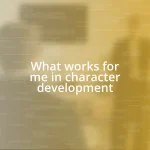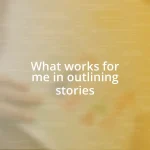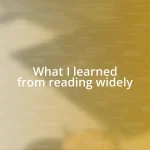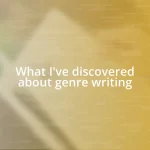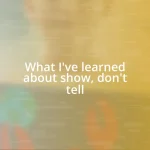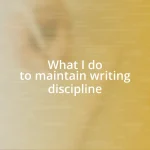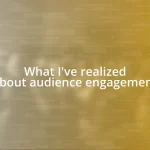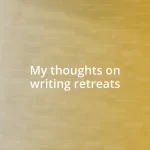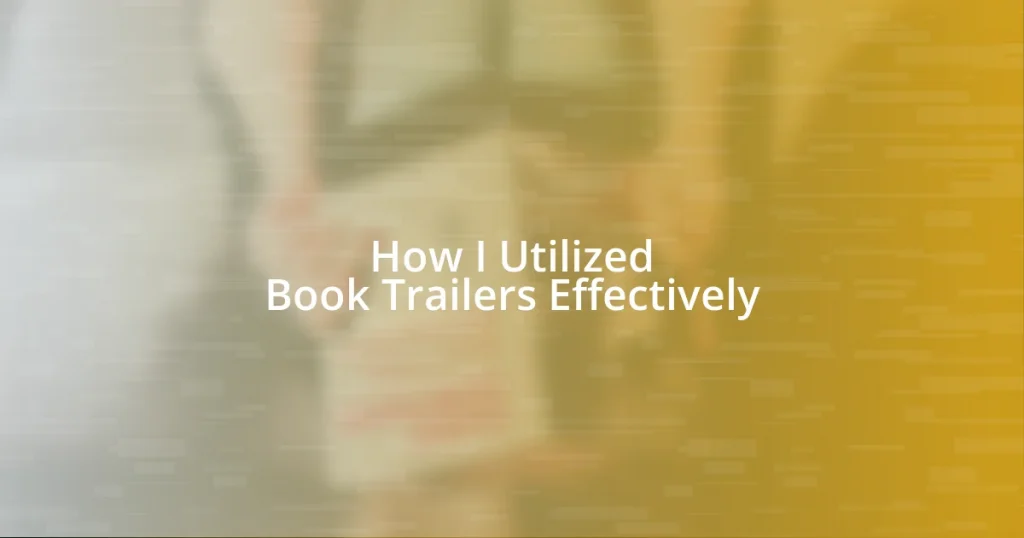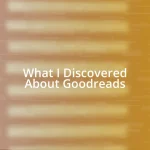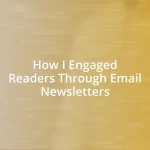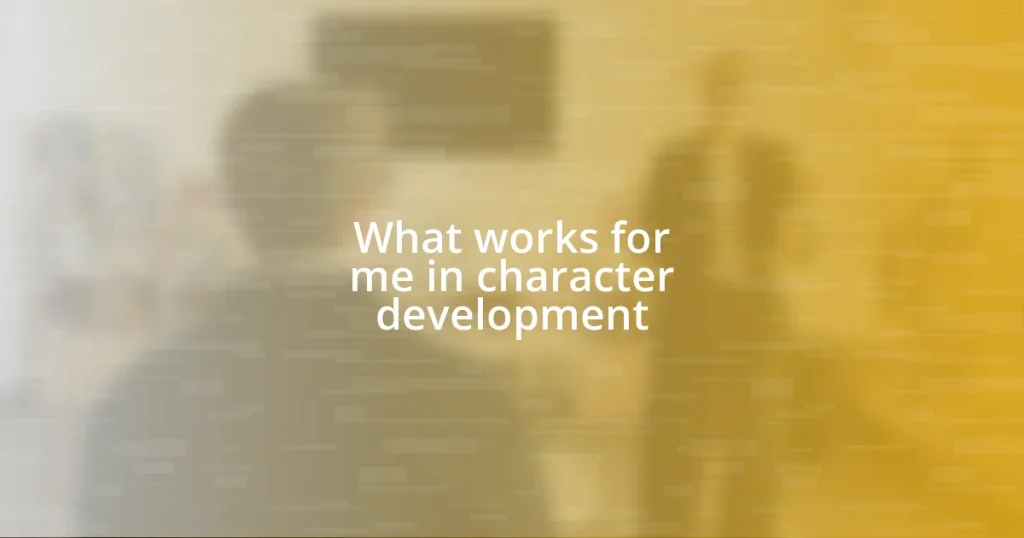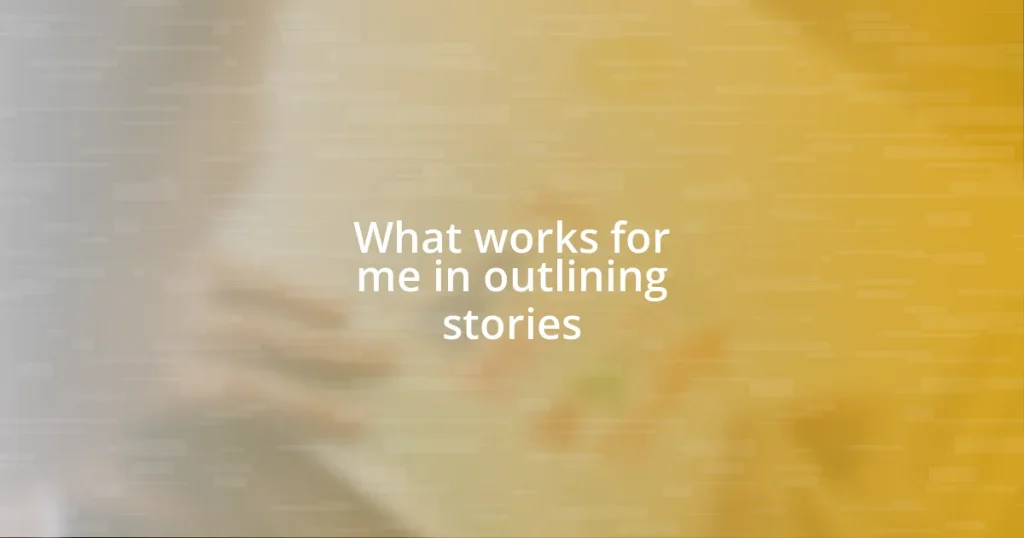Key takeaways:
- Book trailers effectively evoke emotions and create a personal connection with potential readers, enhancing their interest in the story.
- Utilizing various platforms for promoting book trailers increases visibility and engagement, fostering a community around the book.
- Successful trailers are measured not just by views but by engagement and emotional reactions, highlighting the importance of community interaction and feedback.

Understanding Book Trailers
Book trailers serve as a vibrant gateway into the story’s world, much like a movie trailer but for literature. I remember the first time I watched a book trailer—it was for a thriller novel. The music, the visuals, and the snippets of dialogue utterly captivated me. It sparked an excitement that made me eager to dive into the book itself. Isn’t it amazing how just a few moments of video can ignite such anticipation?
Understanding the essence of a book trailer means recognizing its unique power to evoke emotions and set the tone for what’s to come. A well-crafted trailer doesn’t just summarize the plot; it immerses the viewer in the atmosphere and themes. For instance, when I created a trailer for my own book, I focused on highlighting the protagonist’s internal struggle. Seeing the stark imagery paired with a haunting score brought tears to my eyes, even as I worked on it. It truly reinforced my belief in the emotional pull of visual storytelling.
Moreover, I find that book trailers can also connect with viewers on a personal level, creating a form of intimacy before the reader even opens the book. Have you ever felt a bond with a story after watching its trailer? I certainly have. The ability to convey the spirit of a narrative in such a short format makes book trailers an invaluable tool for authors. It’s like giving potential readers a sneak peek into a thrilling adventure or poignant journey—a brief taste that leaves them wanting more.

Benefits of Book Trailers
Book trailers serve as an incredible marketing tool that can significantly boost a book’s visibility. From my experience, I’ve noticed that a powerful trailer can draw in viewers who may not have initially considered reading the book. When I posted my first book trailer on social media, it reached an audience beyond my immediate followers—friends shared it, and strangers commented on how intrigued they were about the storyline. This ripple effect is something every author dreams of, and a well-executed trailer can pave the way for that.
Another benefit I love about book trailers is their versatility in reaching different platforms. Whether it’s Instagram, YouTube, or even a blog, a captivating trailer can easily adapt to fit various formats and audiences. I remember specifically tailoring a trailer for Instagram Stories, using quick cuts and an impactful soundbite. The response was overwhelming! It felt rewarding to see the cold numbers of engagement transform into real interest, driving traffic to my book’s page.
Lastly, the emotional resonance of a book trailer cannot be underestimated. When I included snippets of my own struggles in the trailer, it struck a chord with viewers. I found that sharing personal experiences made the trailer more relatable and engaging to potential readers. This deeper connection is invaluable; it encourages not just sales, but a sense of community among readers who may also be facing similar challenges or experiences.
| Benefit | Details |
|---|---|
| Increased Visibility | Book trailers attract attention, reaching a wider audience through shares and engagement. |
| Platform Versatility | They can be adapted for different social media platforms, allowing for broad exposure. |
| Emotional Resonance | Trailers evoke emotions, helping create a personal connection between the reader and the story. |

Choosing Your Target Audience
When it comes to choosing your target audience for a book trailer, it’s crucial to know who you’re trying to reach. Tailoring your message creates a more significant impact. I remember creating a book trailer specifically aimed at young adult readers and realizing that my choice of music and imagery needed to resonate with their experiences—issues like identity and belonging mattered. By focusing on this demographic, I connected with viewers who felt seen and heard, increasing the likelihood they’d explore the book further.
Additionally, identifying your target audience means understanding their preferences and habits. This can guide everything from the style of the trailer to where you choose to share it. Here are some key considerations:
- Genre Alignment: Ensure the trailer’s tone matches the book’s genre to attract the right viewers.
- Platform Selection: Identify where your audience spends their time online—Instagram, TikTok, or Goodreads?
- Demographic Insights: Research the age, interests, and typical reading habits of your ideal readers to better tailor your content.
- Engagement Style: Decide if your audience prefers serious content or light, humorous approaches and craft the trailer accordingly.
I’ve found that being specific about your target audience not only leads to better engagement but also shapes your overall marketing strategy. It feels rewarding to see the right people responding positively, as I did when a group of young adults reached out, thanking me for portraying their stories in a way that felt genuine. That connection is what makes the effort worthwhile.

Creating Engaging Content
Creating relatable content for a book trailer is crucial in captivating potential readers. I remember when I integrated behind-the-scenes footage of my writing process into my trailer. It felt like inviting the audience into my world, offering them a glimpse of the passion and effort behind the story. This kind of authentic content creates an emotional thread that can pull viewers in, making them feel more invested in both me and my work.
The visuals and sound are just as important as the message. For one trailer, I chose a haunting melody that mirrored the themes of my book, complementing poignant imagery from the story. The blend was striking; viewers often commented that they could feel the emotions jumping off the screen. Have you ever watched a trailer and felt it echo your own experiences? That’s the magic I aimed for—to make connections that linger long after the video ends.
Moreover, asking open-ended questions in the trailer can spark curiosity and engagement. I included a line like, “What would you do if you faced your greatest fear?” This not only invites viewers to reflect on their own lives but also connects them to the protagonist’s journey. I found that such strategies can prompt potential readers to seek answers within my story, which ultimately drives them to pick up the book. Every element you create should intuitively pull the viewer closer, fostering that essential emotional bond.

Where to Promote Your Trailers
When it comes to promoting my book trailers, I’ve discovered a few key platforms that really resonate. For instance, I often share my trailers on social media outlets like Facebook and Instagram, where visual content thrives. I remember the thrill of seeing my trailer go viral on Instagram Stories after a fellow author shared it; that organic reach was invaluable. Have you ever experienced that rush of connection with a wider audience? It’s addictive and so motivating!
Beyond social media, I’ve found that sites dedicated to book lovers, like Goodreads, offer a unique space for promotion. When I posted my trailer there, I engaged directly with readers who were already interested in my genre. It felt like stepping into a cozy bookshop where everyone was discussing their latest reads. This environment fostered an immediate sense of community, and the feedback was genuinely encouraging. Those passionate readers can become your biggest advocates.
I’ve also learned that videos on YouTube can be a treasure trove for exposure. I often upload my trailers there, and I’ve been pleasantly surprised by the comments from viewers who stumbled upon my work. It’s fascinating to think about how a simple trailer can pique someone’s interest miles away. With platforms evolving, have you considered exploring TikTok? The potential for a targeted viral moment is limitless, and I’ve seen authors thrive there by cleverly using trending sounds paired with eye-catching visuals. It’s all about experimenting and finding your niche!

Measuring Trailer Success
Measuring the success of my book trailers goes beyond just the number of views. Early on, I focused on engagement metrics like comments and shares. One particular trailer resonated with viewers so deeply that it sparked a discussion thread in a Facebook group for book lovers. It made me realize how meaningful it is to not just attract attention but to foster conversations about the story and its themes. How do you feel when a piece of content sparks dialogue? For me, it felt like my writing was truly connecting with others.
I also track call-to-action conversions by looking at how many people click on links to purchase the book after watching the trailer. I vividly remember the excitement of seeing a spike in sales the week my latest trailer was released. It was a direct correlation that filled me with motivation to create more engaging trailers. The thrill of knowing that my visual storytelling is driving readers to dive into my book is incredibly rewarding.
In addition, I pay attention to qualitative feedback. Some viewers write to me about their emotional reactions, saying how the trailer made them feel a certain way or how it connected to their life experiences. I cherish these messages because they validate my efforts as an author. Have you ever received feedback that simply made your day? It’s those personal connections that often mean the most, reinforcing the impact of my trailers beyond just numbers.

Case Studies of Successful Trailers
One striking example that comes to mind is a fellow author who created a stunning trailer for her fantasy novel. Not only did she use breathtaking visuals, but she also incorporated a powerful voiceover that drew me in instantly. I could see the excitement ripple through her community when she shared it. It’s amazing how a well-crafted trailer can ignite anticipation and buzz around a book, don’t you think?
I also recall my own experience with a trailer I made for a mystery-thriller. I integrated suspenseful music and fast-paced cuts, which eerily mirrored the book’s tension. The result? A substantial increase in pre-orders, and I was thrilled to hear from readers who said the trailer left them on the edge of their seats. That response filled me with joy, reaffirming that the visuals resonated with the story I had poured my heart into.
Another case is a romance author I follow who utilized a trailer with a storytelling approach rather than just showcasing her book. She weaved in snippets from her characters’ journeys, making me curious about their love story. It was a brilliant strategy, as many viewers reached out to her about their own experiences with love and heartbreak. Isn’t it profound how a trailer can transcend mere promotion and foster genuine emotional connections? It’s a reminder of the storytelling power we wield as authors.
